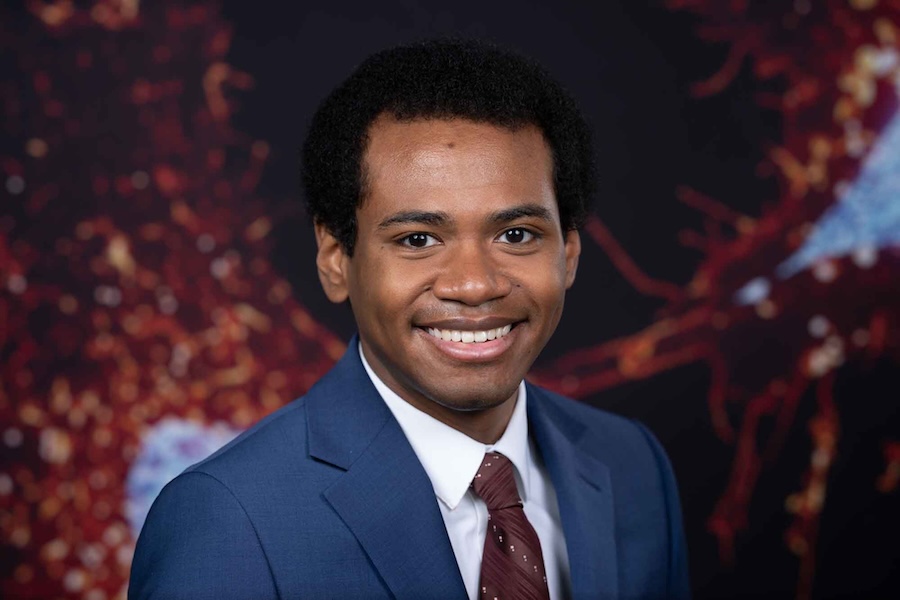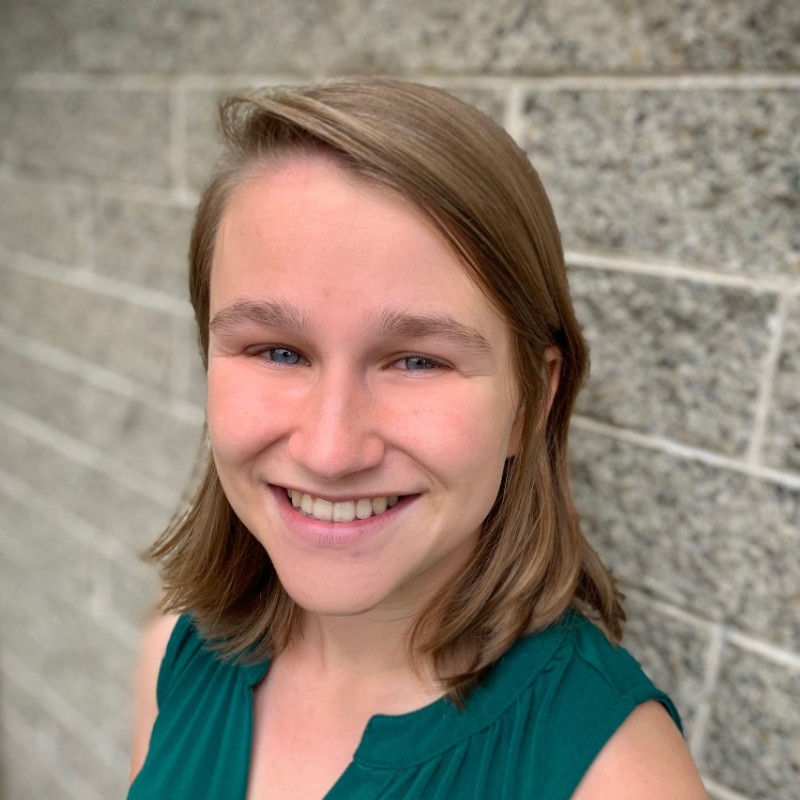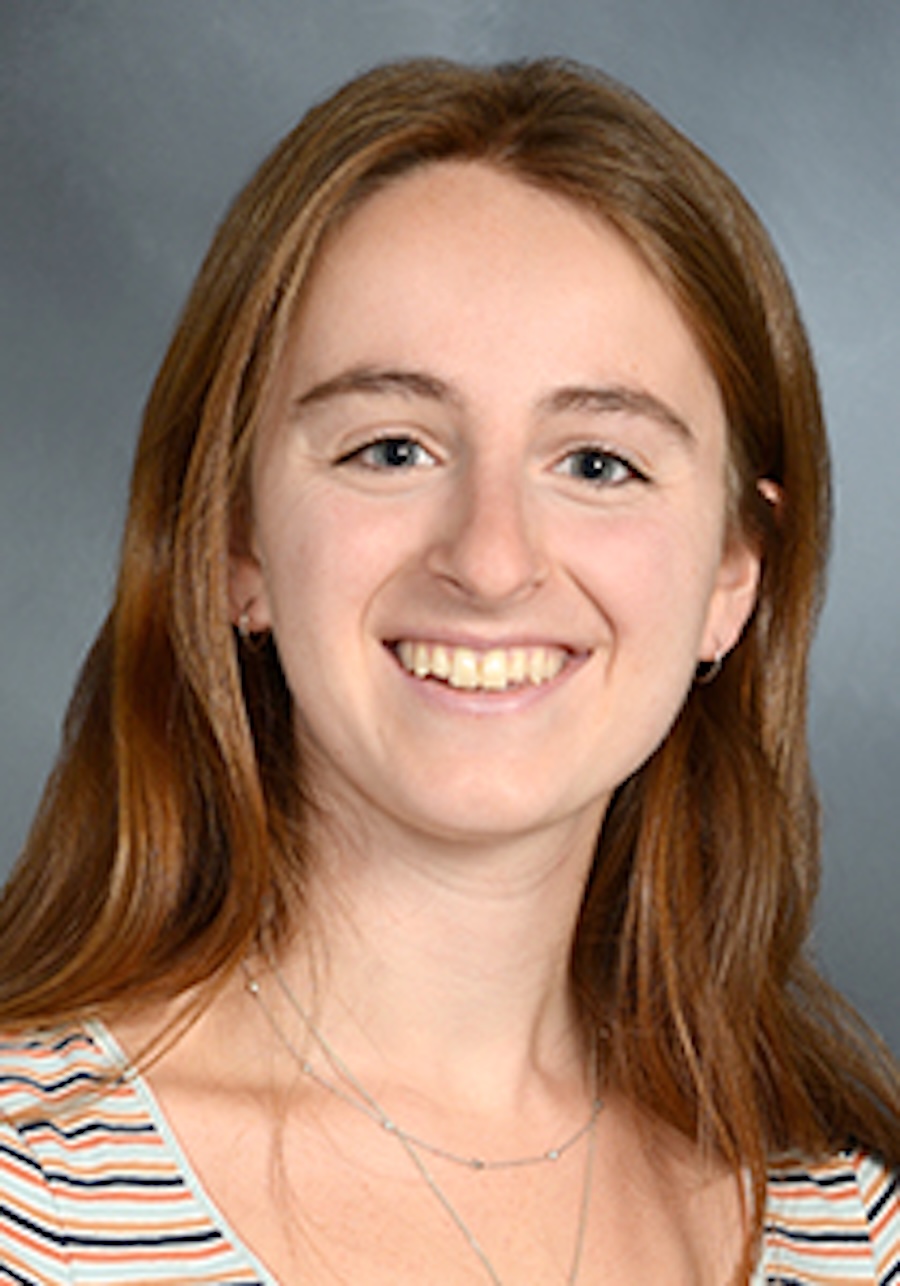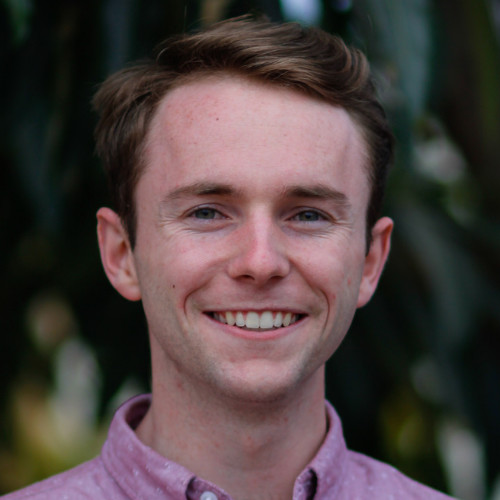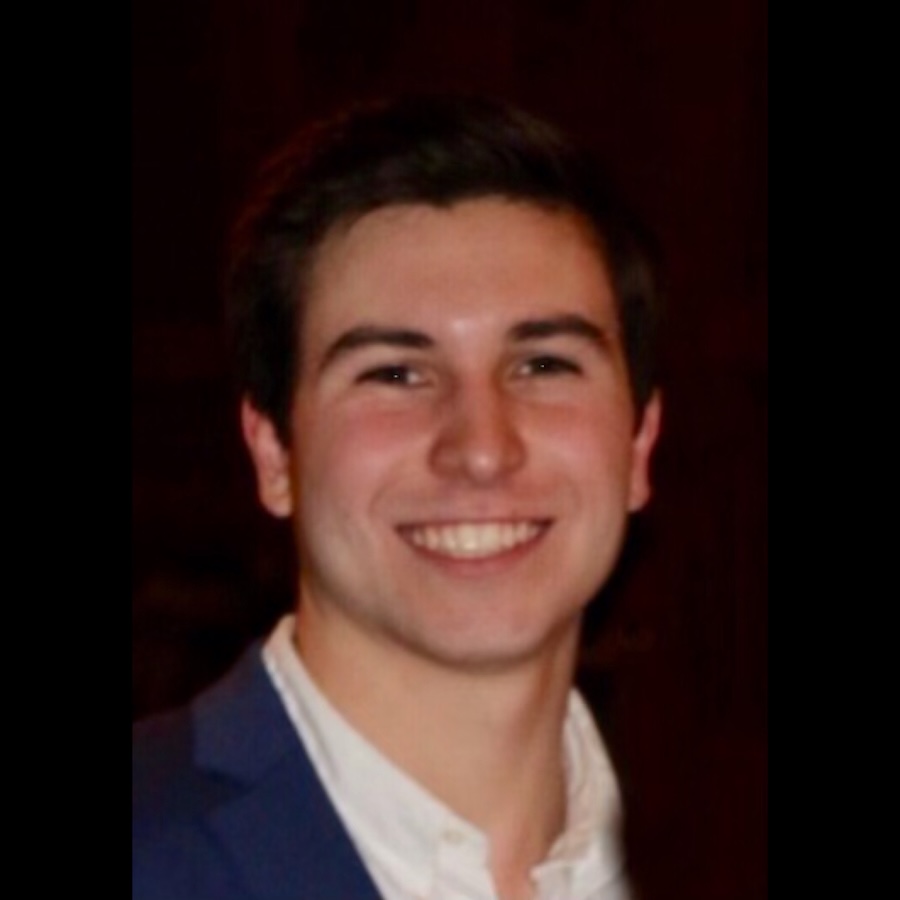What have you been up to since graduating from Bowdoin?
After graduating from Bowdoin, I enrolled in the molecular biology PhD program at the Massachusetts Institute of Technology, where I work in the Tyler Jacks lab. Our group uses genetically engineered mouse models to study how the immune system influences lung cancer development.
Why biochemistry?
Even before my time at Bowdoin, I was always interested in understanding the mechanisms that drive human diseases. My classes and conversations with faculty fostered a deep appreciation for how biochemistry can be used to understand biological systems, which only made me want to study it further.
Are there any classes, professors, or experiences that had a lasting impact on you?
The most impactful Bowdoin experience I had was pursuing an independent honors project with Professor Danielle Dube. In her lab, I was able to use biochemical tools and techniques to address real-world biomedical questions. Students were the primary driving force behind progressing projects. We shaped the questions we asked, the techniques we applied, and how we interpreted our data. Working with Professor Dube thoroughly prepared me and set me up for success in graduate school.
